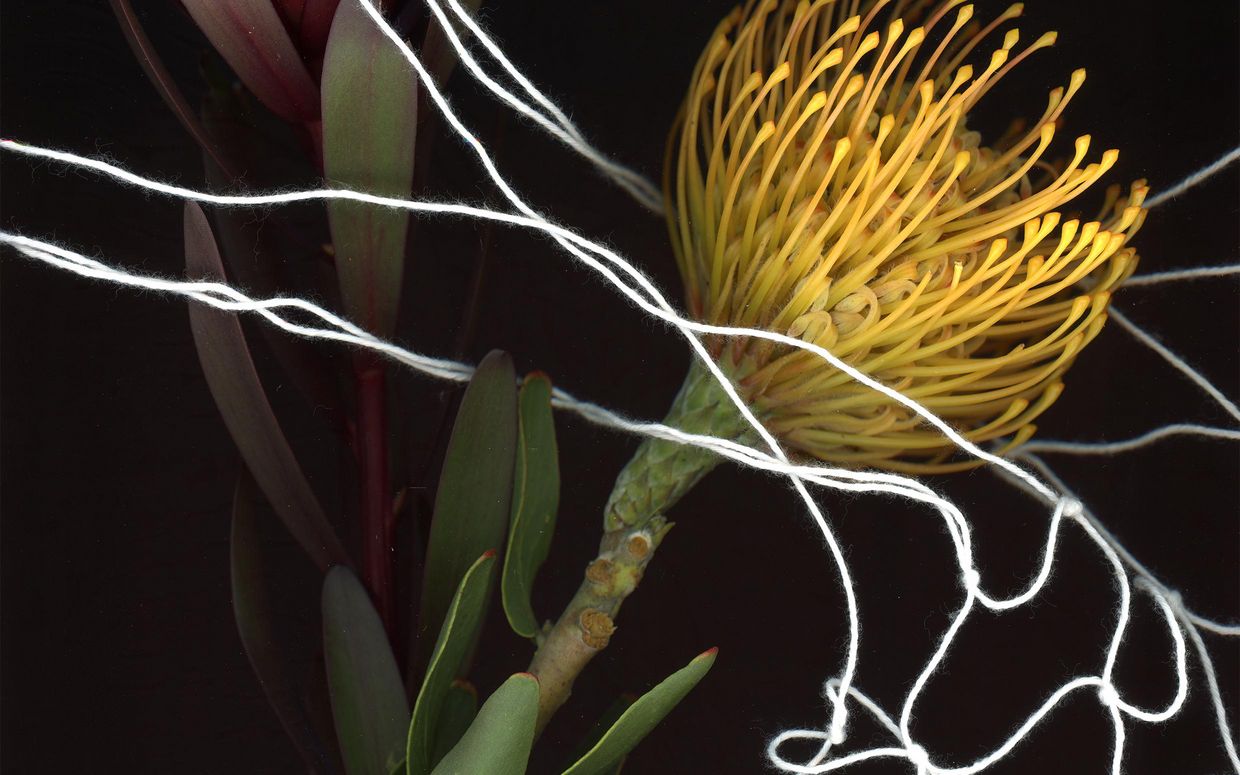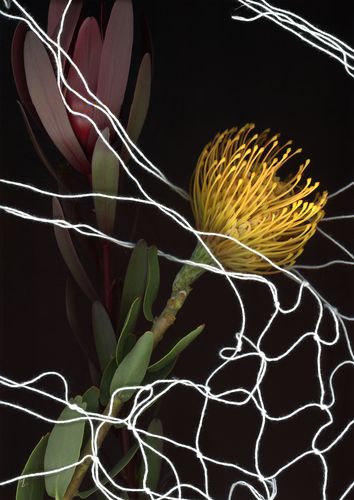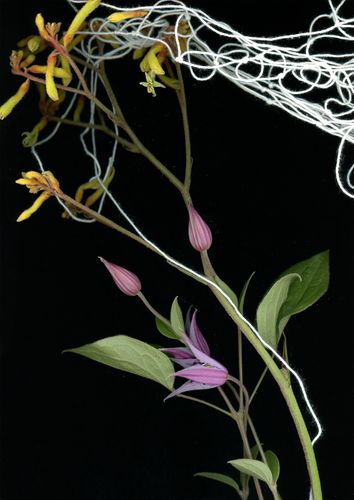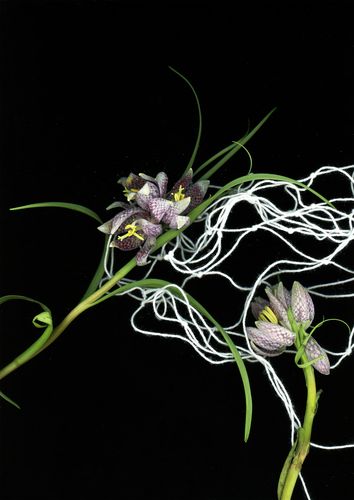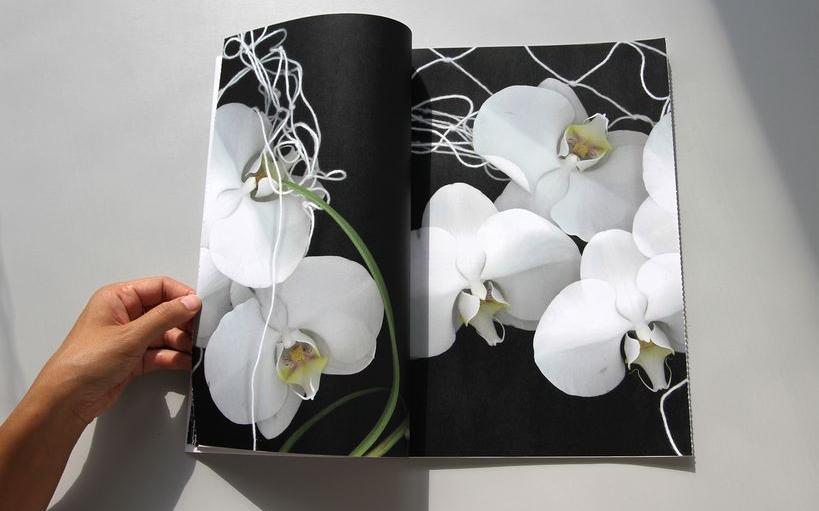About the exhibition
This recognition of the hybrid as well as the development of colonial cultures and history is the theme of T. Lauw in Dark Pairing by interweaving plants in a fine-meshed network. Images of cultural inscription and overlay arise precisely from the impossibility of unraveling the materials. The net is no longer just a symbol of capture, but becomes the carrier of the other. At the same time, it is precisely through this function of the wing that it maintains its dominant position: the network not only determines the formation and arrangement of the individual flowers, it also decides what is in front and behind, an outside and an inside: it becomes a border location. In Dark Pairing this obvious upper hand disappears in favor of a fine interweaving of the materials. Instead of wire, we are now dealing with knotted yarn, which forms a common network with the plants. Despite the poetic-visual language, the brutality of colonial rule becomes the red line of T. Lauw's works.
By using exotic plants, the striving for rule by colonial powers over indigenous cultures is critically examined. The fascination of the exotic has a long history and developed from an extremely hierarchical understanding of the "foreign" of other continents. Collecting “exotic” plants was part of the process of colonization and can be interpreted as an act of cultural appropriation (of the exotic). By building up the works, T. Lauw formulates the appropriation and imposition of the cultural as a processual development, the traces and memories of which form identities to this day and beyond.
The artistic presentation is part of the project TAKING CARE. Ethnographic and World Cultures Museums as spaces of care, which is co-funded by the Creative Europe programme of the European Union. In this project, 13 partner museums explore the connections between ethnographic collections and questions about the climate crisis and the Anthropocene, and in this context address the aftermath of colonialism. In this way, the project positions ethnographic and world cultures museums as places that address these issues in a participatory and creative way.
Daily (except Monday)
10 am to 6 pm
Tuesday
10 am to 9 pm
Neue Hofburg, Heldenplatz
1010 Vienna, Austria

